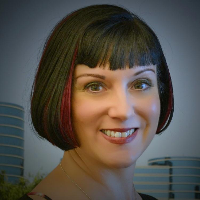I decided to start a series of blogs where I interview key people in the SQL Server community. Instead of me asking technical questions, I plan on asking about their outlook on the future, books they read (non-fiction and/or technical), and their overall thoughts on where technology (mainly SQL Server) is headed. You can find more interviews here.
Next up: Kellyn Pot’Vin-Gorman (b | t):
Mohammad: Do you think people who dismiss the cloud as a “fad” or just don’t take it serious enough to learn about it (i.e. Azure, AWS, etc), will be in a tough spot to find a job 5 years from now?
Kellyn: As I’m very multi-platform, I think the answer depends on the platform, the technology and the business you work for.
Those who work in larger enterprises, for government, finance or security are going to be more hesitant to move to the cloud. Other reasons that will hold migrations to the cloud back:
- The Oracle cloud isn’t as mature as Amazon or Azure and still needs more time to catch up.
- I know of Fortran developers that are doing just fine managing what is left still in play.With the amount of Oracle DBAs retiring and those that will remain to work on-premises, the newer ones can manage those going to the cloud.
- Applications can transition to the cloud more easily and readily than home-grown or multi-tier systems.
Do I think those DBAs updating their skills will be more in demand and have an increase in salaries vs. those on-premises? Yes, absolutely.
Azure is making it easier for DBAs to transition to become adept in cloud database management and they’ve continued to have a focus on DBAs, not just taken the easy route of aiming all enablement towards development.
Mohammad: Do you ever see the traditional SQL Server DBA role being replaced/eliminated?
Kellyn: No, the role may change a bit, but it will always be. As we improve the optimizer performance and database technology, there will always be those environments that require “a human touch” of the expert. There is a company that I spoke to a couple months ago, that has shifted 30% of their business to auditing cloud deployments. Of those audits, over 80% of them aren’t viable and must rebuilt from the ground up. Almost every one is because they didn’t have the database, the security and administration expertise to build the cloud deployment out in the first place. The project thought they could speed up deployment by bypassing DBAs and others, but instead, discovered catastrophic flaws due to this choice. There is a reason for the gatekeepers in technology. DBAs with expertise in optimization, automation and security practices will continue to be in high demand for the long haul..
Mohammad: What are you most proud of doing/accomplishing for the SQL Server community so far in your career?
Kellyn: I’ve only become a part of the SQL Server community in the last year, having been a long time contributor for Oracle. I would have to say, becoming an Idera ACE and becoming president of the Denver SQL Server User Group. This is a great group of volunteers on the board and I hope that I can serve as president in a way that they can continue to do greater.
Mohammad: What non-technical/non-fiction book/s would you recommend? If you only read technical books…what do you recommend?
Kellyn: I’ve had the great pleasure of working and being taught by some of the best in the business, but as SQL Server DBAs, it’s time to learn Linux.
A Practical Guide to Linux by Mark Sobel
Pro SQL Server Internals by Dmitri Korotkevitch
And just because it’s awesome: Mastering Trace Data by Cary Millsap
Mohammad: For someone who’s career focus has been on one aspect of SQL Server (i.e. Database Engine), do you think it would be wise for them to become a “jack of all trades” by starting to learn, SSRS/IS/Azure, etc. or remain focused on their area of expertise? In another words, which would you say is more valuable? mile wide / inch deep or inch wide / mile deep?
Kellyn: I have a very unique view on this topic. I started out very multi-platform and then worked for two companies, (Oracle one of them) where I went in deep. I believe in a little of both due to this. Pick something that inspires you in a primary technology and then widen your knowledge in other areas. As you learn about different technologies, it can make you better at the one you are passionate about. My answer is a mile wide and an inch deep except in those that you become passionate about. For those, dive, dive!!
One Reply to “Interview – Kellyn Pot’Vin-Gorman”